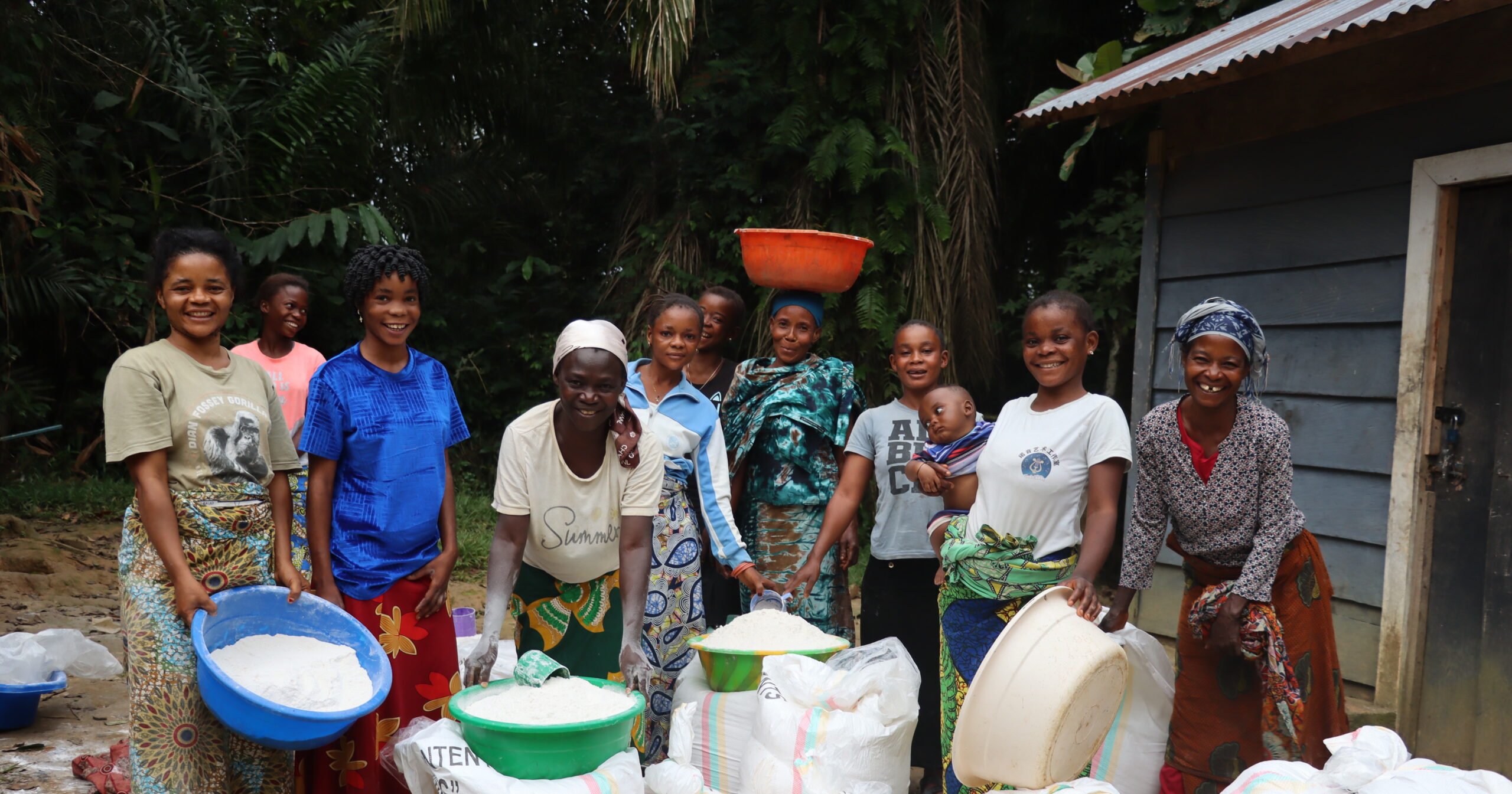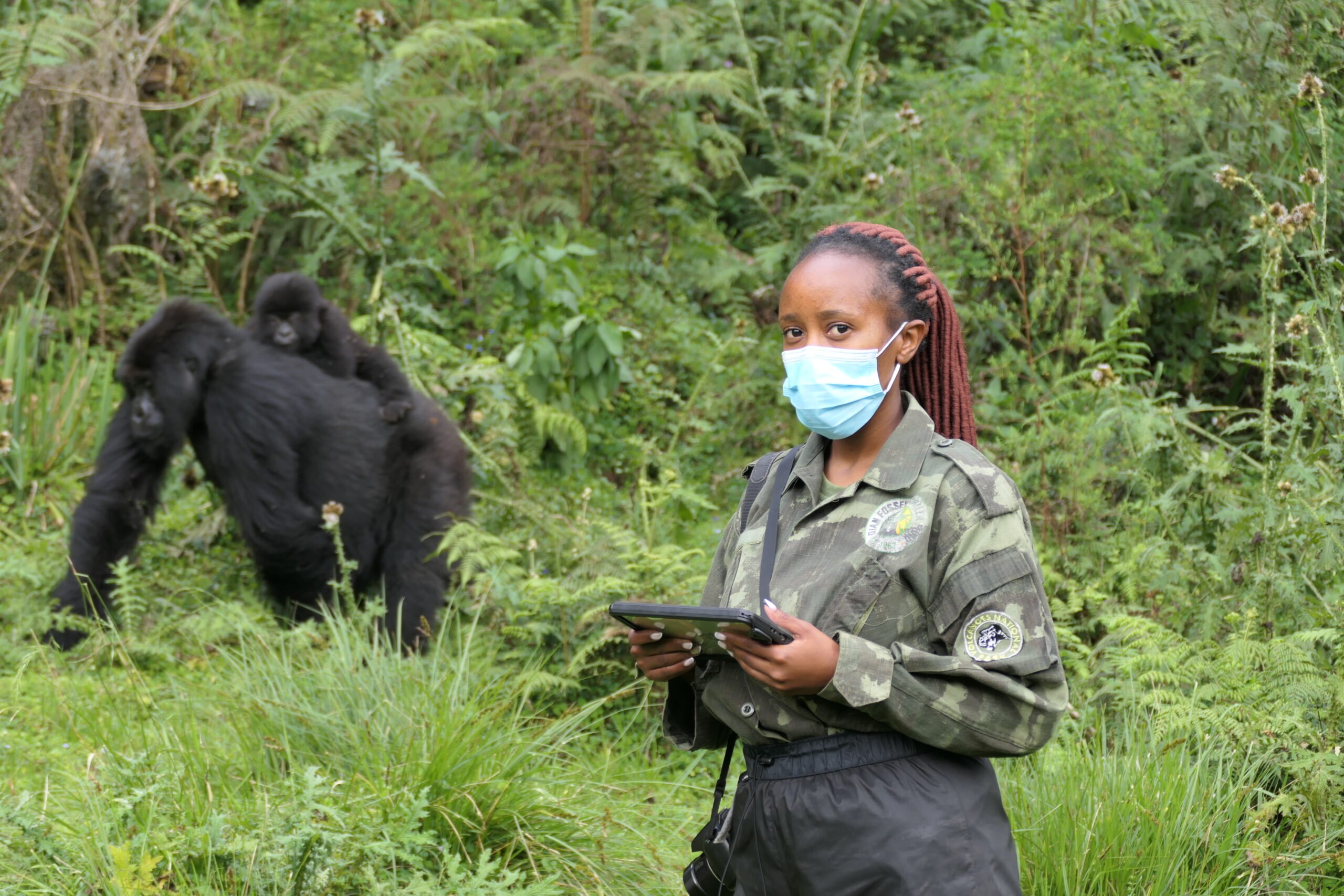Teaching conservation, science, leadership and other skills are crucial parts of the Fossey Fund’s programs in Africa. At our Karisoke Research Center in Rwanda, we have had great success with our internship program, which includes both academic and professional levels. The academic internships are for undergraduate college biology students, while the professional internships are for those who have already graduated and need practical training for their careers.
All the internships share the same goal, however, which is to learn different aspects of conservation by working alongside professionals in the field. Activities range from field work, to laboratory practice, scientific assistance, data entry, classes and writing exercises.
“The benefits are mutual, as interns are eager to learn and practice tasks, at the same time as they contribute to the running of our programs,” says Felix Ndagijimana, the Fossey Fund’s Rwanda program director and director of the Karisoke Research Center. “They provide significant help to Karisoke and also gain great advantages for employment when there are permanent positions available,” he adds.
The one-year professional intern program is funded by the Cleveland Metroparks Zoo, so that the interns can receive a small monthly salary. Currently, the two long-term interns are Nadia Niyonizeye and Marie Fidele Tuyisenge, both of whom did undergraduate work at Karisoke last year. Included in their internship duties are work in our biodiversity program, lab assistance, and helping staff our gorilla conservation exhibit.
Nadia has a bachelor’s degree in zoology and conservation from the University of Rwanda and says she enjoys the variety of tasks, learning new skills and especially the spirit of team work she finds at Karisoke. Currently she is processing gorilla fecal samples in the lab, giving tours in the exhibit, working with data from our amphibian research, and training to use RStudio. Next year she looks forward to helping with our bird surveys and bamboo mapping in the park.
Marie has a bachelor’s degree in biology/botany and conservation and works on similar projects as well as updating the Karisoke herbarium, given her education in botany. “The thing that I like most is that I get more practical experience of what I learned at school, as well as being able to collaborate and interact with other people in my field,” she says.

Both Nadia and Marie say they hope to continue their studies at the master’s degree level, as well as to continue professional work in conservation. Their opportunities continue to increase also due to their use of English during their work in the internship and in interacting with the public at Karisoke.
Innocent Kwizera is another intern who has just arrived at Karisoke for a three-month experience. He has a diploma in wildlife management from the Kitabi College of Conservation and Environmental Management and is working on our bamboo habitat assessment project. “Learning more about the conditions favorable to bamboo growth, will help gorillas and golden monkeys, since this is one of their preferred foods,” he says.

Opportunities like this are growing in Rwanda, says Ndagijimana, and “the Fossey Fund is proud to offer a very good model. I particularly like the concept of becoming conservationists by learning from conservationists,” he adds.







